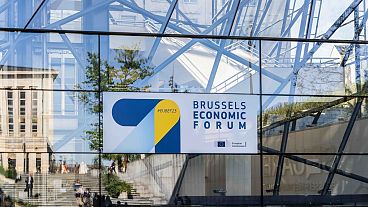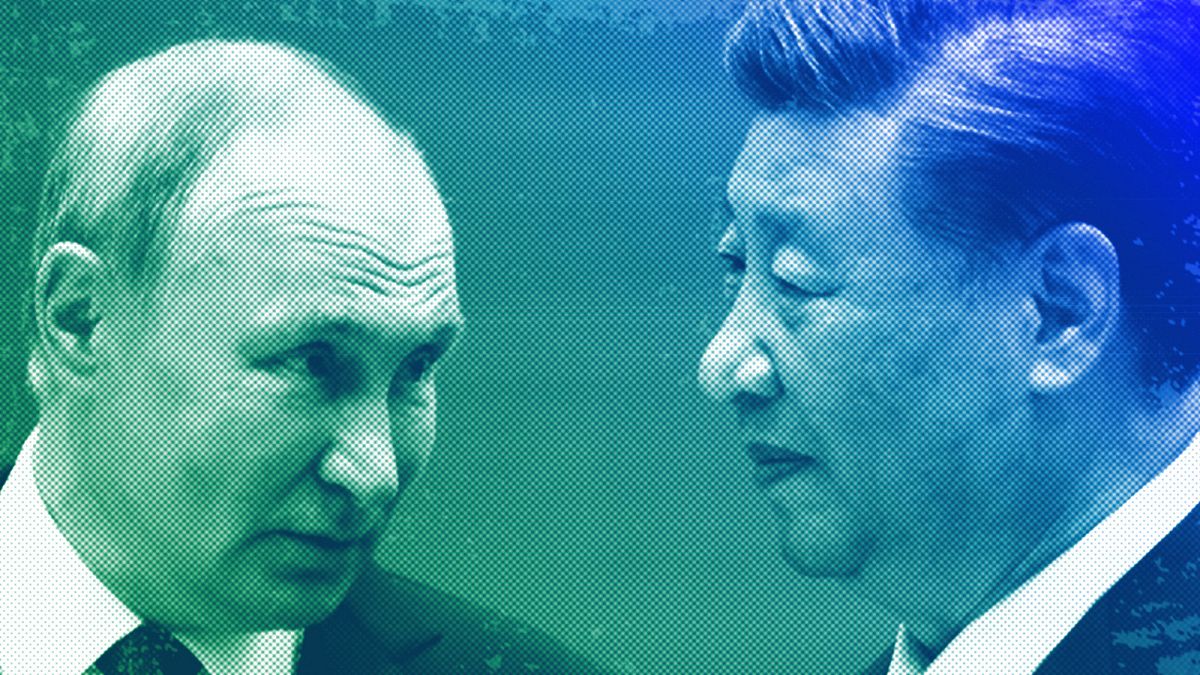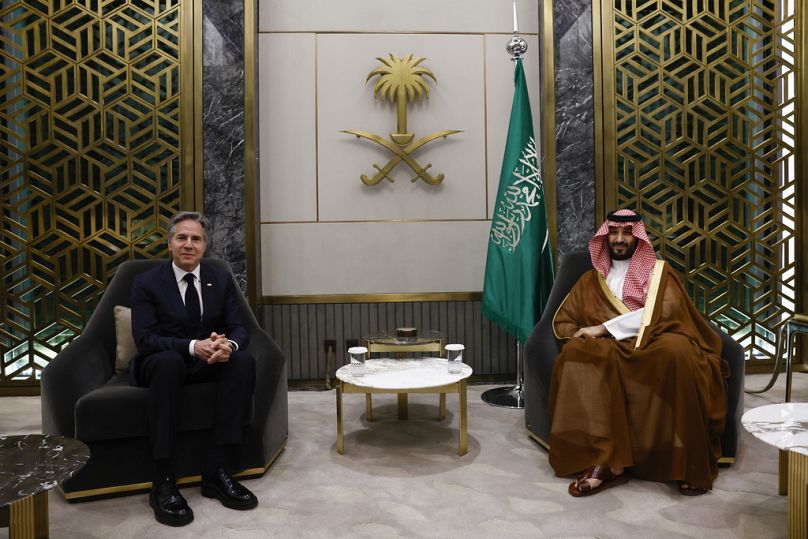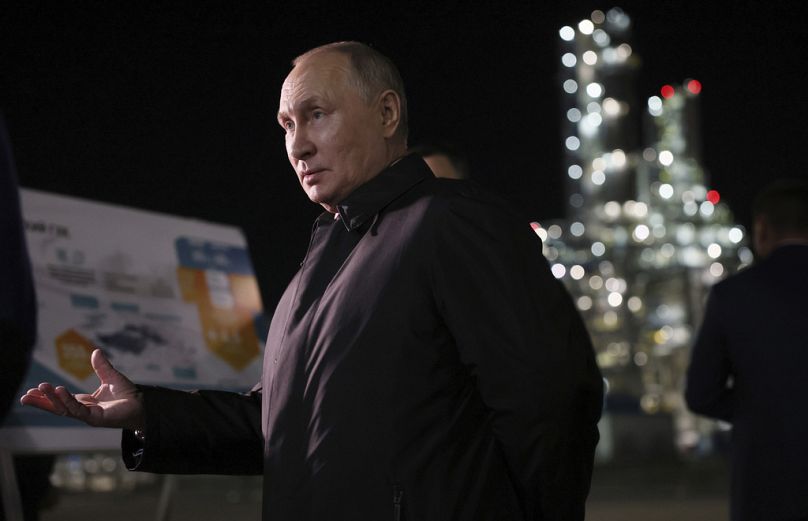Through no fault of their own, Saudi Arabia and Israel find themselves at the nexus of the main geo-political rivalry of the 21st century, Terry Newman writes.
As the world pores over the intricate details of hostage releases, trucks of humanitarian aid or even dimensions of Hamas' tunnels, we are in serious danger of missing the wood for the trees.
The ongoing multi-front Iranian attack on Israel by Hezbollah in the north, Hamas in the centre and Houthis in the south, has been minimised and rebranded as a Hamas-Israel war.
But the actual wood is even wider.
The announcement of the India-Middle East-Europe Economic Corridor, or IMEC, just weeks prior was what actually triggered the 7 October attacks.
Unsettling the Russia-China-Iran axis sparked the regional Middle Eastern conflict, which now threatens to spread into a global war.
US foreign policy and China's surprise peace deal
Three main pieces of evidence point in this direction, despite the continued denial by the various parties.
Let’s start with US foreign policy over the past few years. It is widely known that the Biden administration has not been the biggest admirer of Mohammed Bin Salman, or MBS, the de-facto ruler of Saudi Arabia, since the murder of journalist Jamal Khashoggi in 2018.
It is also common knowledge that the Biden administration has openly shunned the current Netanyahu government. Yet, despite these limitations, Biden has invested huge military, economic and diplomatic efforts in promoting the normalisation of relations between Saudi Arabia and Israel.
Indeed, the three months leading up to 7 October saw an increasing chorus of US, Saudi and Israeli leaders openly discussing an impending peace treaty.
Secondly, in March 2023, China surprised the world and brokered a peace treaty between Iran and Saudi Arabia. After decades of enmity and a formal cutting of ties in 2016, this treaty was touted as a momentous development in the region.
But more surprising than the treaty itself was the choice of the Chinese midwife and the location of the signing in Beijing itself.
China has not historically involved itself in brokering peace treaties around the world, even more so in the Middle East — notorious for being one of the most complicated geo-political regions in the world.
Many surprised onlookers explained the Chinese role as a desire to diminish American diplomatic prestige. The reality is more economic than diplomatic.
Russian gas? No, thank you
Then, on 10 September 2023, the governments of India, the US, the UAE, Saudi Arabia, France, Germany, Italy, and European Union representatives signed the Memorandum of Understanding officially starting the IMEC at the G20 in New Delhi.
This economic corridor is set to be the largest economic infrastructure project ever undertaken by the democratic world and its supporters in the Gulf monarchies.
It will connect the 1.4 billion citizens of India with the 400 million people living in the Middle East and another 750 million in Europe through a series of ports, train tracks, and pipelines. It is a direct threat to the economic interests of Washington's two main military and economic competitors — Russia and China.
The Russian economy and military machine are dependent on hydrocarbons. The irresponsible dependence of European civilian and industrial life on Russian gas was highlighted at the start of Moscow's full-scale invasion of Ukraine in 2022.
Initially, Europe was directly funding the Kremlin's war machine through the purchase of Moscow's gas whilst simultaneously applying sanctions on the Russian economy and supporting Ukraine.
The IMEC offers the best solution to providing Europe with an alternative to Russian gas, hence the Kremlin's opposition to the project.
Saudi-Israeli normalisation at the heart of the issue
For its part, the Chinese government had already embarked on the largest infrastructure project known to humankind in 2013. This project, the Belt and Road Initiative (BRI), is designed to connect 75% of the globe encompassing 50% of global GDP via road, rail and sea to Beijing.
Already in its 11th year, the BRI has seen success, particularly in developing countries, whilst awakening much of the democratic world to the scope of President Xi Jinping’s vision.
The IMEC is the answer of the democratic world and its allies to China’s BRI and as such the biggest threat to China’s vision of redefining the global order.
Saudi-Israeli normalisation lies at the centre of the IMEC. Through no fault of their own, Saudi Arabia and Israel find themselves at the nexus of the main geo-political rivalry of the 21st century.
The US has been pushing hard to strengthen the infrastructure which will protect their interests for the rest of this century.
The Chinese tried to torpedo this by brokering the Iranian-Saudi peace treaty but to no avail.
The signing of the IMEC on 10 September left China, Russia and Iran with few remaining options to stop Saudi-Israeli normalisation other than regional war. And that is why we are where we are.
So when you next find yourself staring at the trees, take a step back and see the wood for what it really is.
Terry Newman is an author with two decades of political and business experience across the Middle East.
At Euronews, we believe all views matter. Contact us at view@euronews.com to send pitches or submissions and be part of the conversation.




